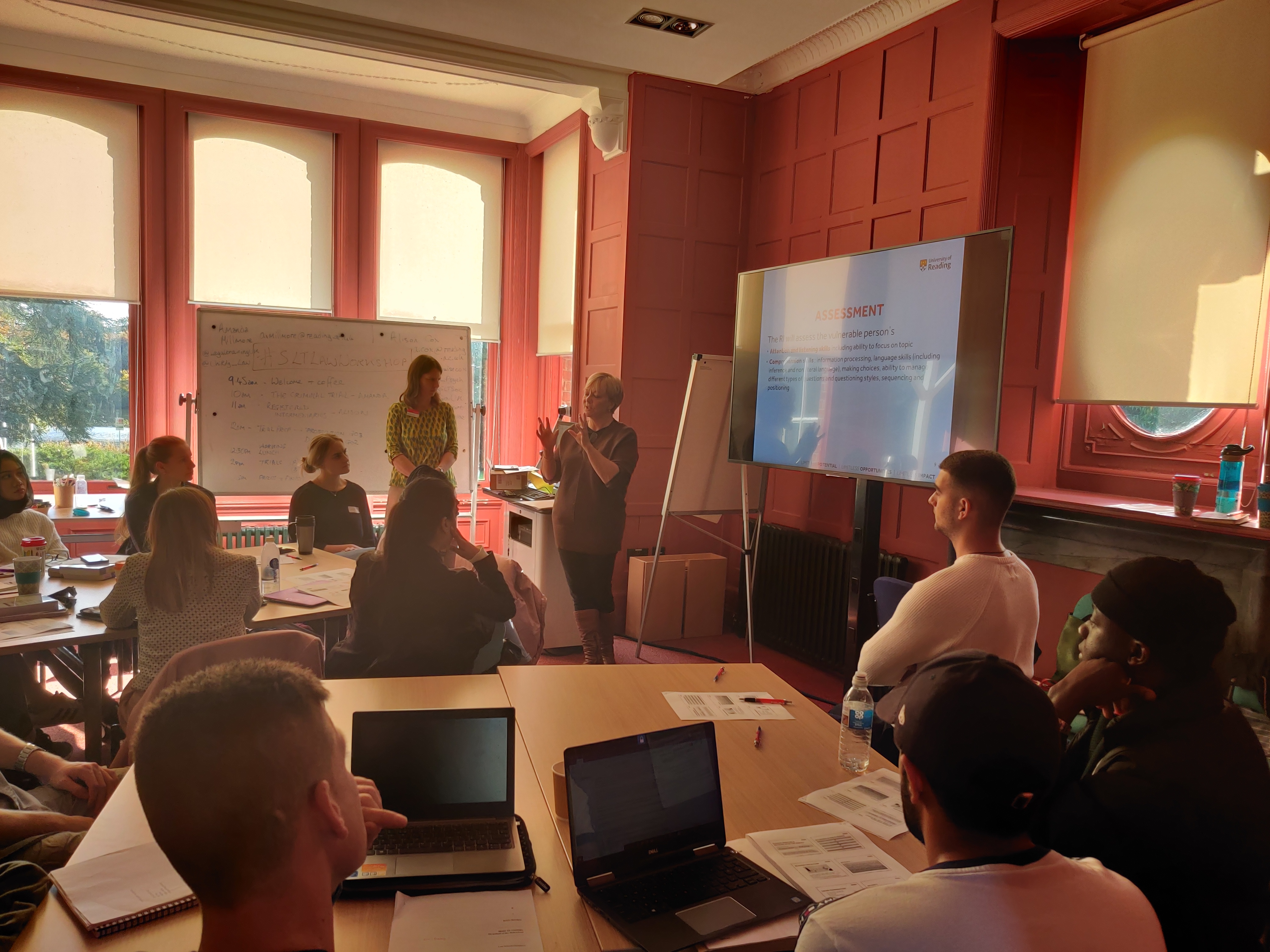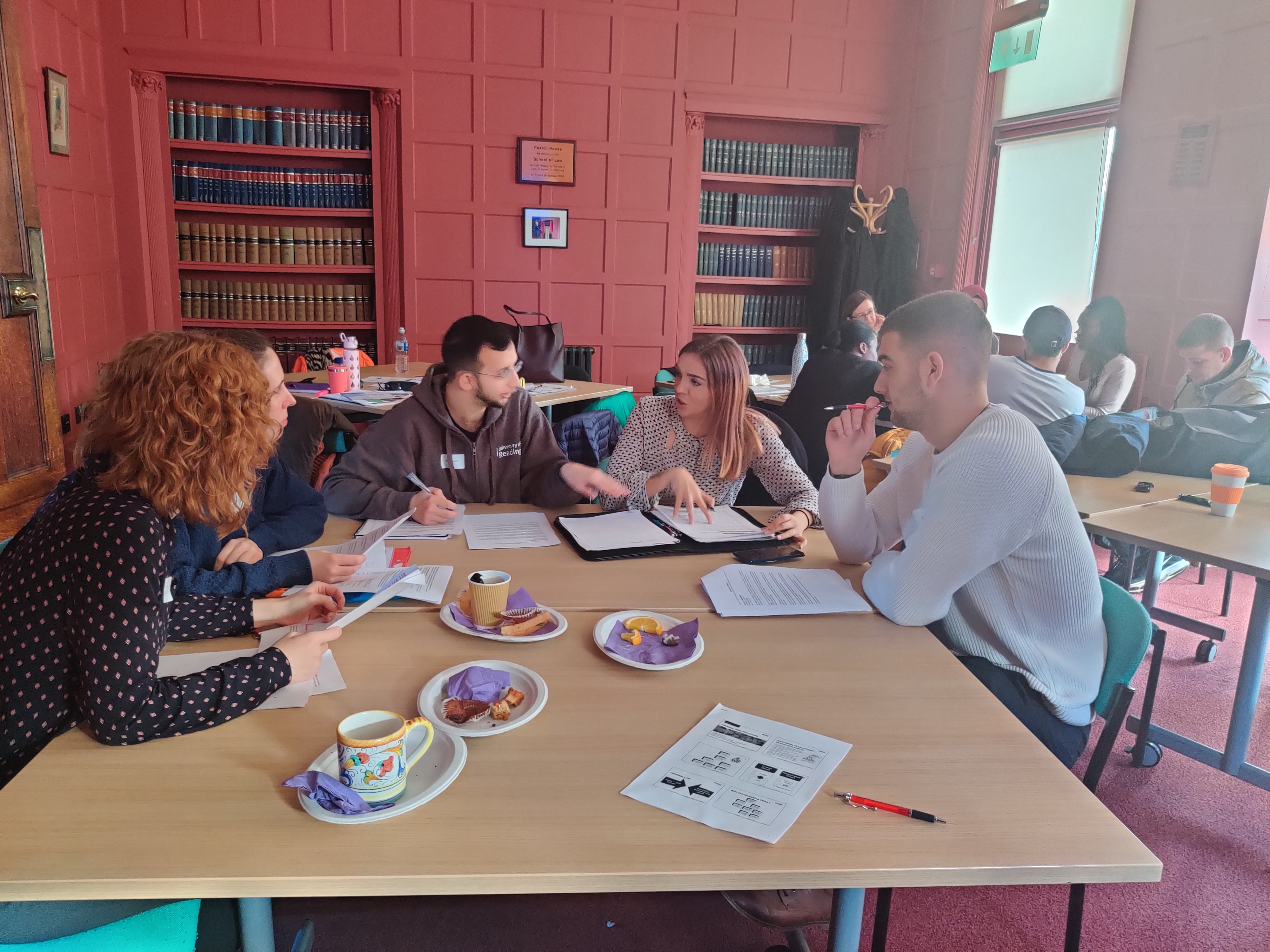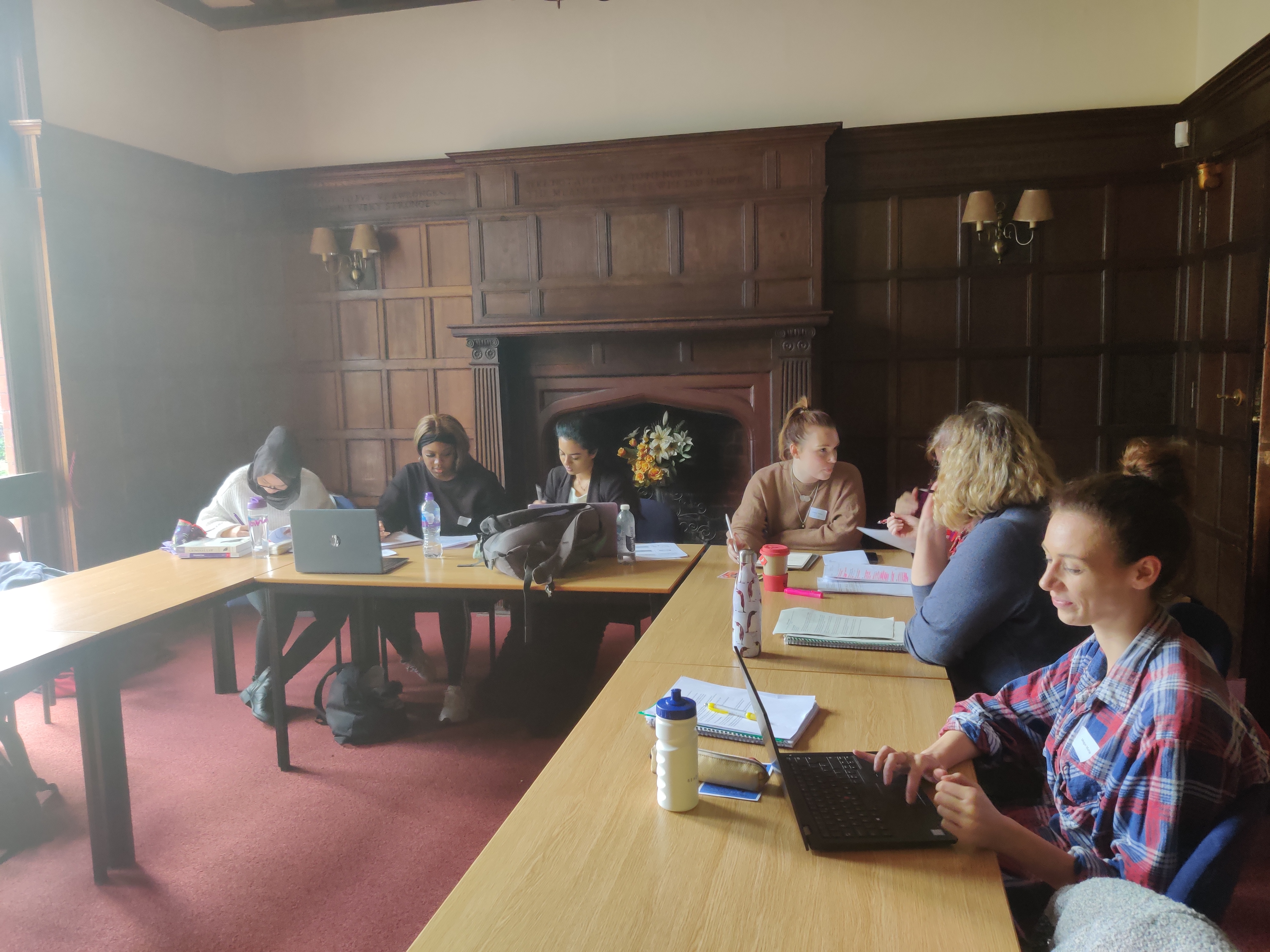Natalie Drake, Gemma Peacock, Rachel Rushton – ISLI
n.drake@reading.ac.uk; g.peacock@reading.ac.uk; r.rushton@reading.ac.uk
Overview
Moving two ISLI academic skills modules (IF0ACA and IF0RAS) to online delivery presented certain challenges for group interaction. In online learning environments building interpersonal relationships, and dealing with both connectivity issues and different time-zones can prove problematic for international students and their tutors. To address this, group OneDrive folders were set up as a repository for collaborative documents, such as research findings or presentation slides. Students interacted with these during online workshops and asynchronously, while tutors monitored group engagement and provided instantaneous feedback to students. It resulted in a positive student response and recognition of its transferability as a study skill and to face-to-face learning.
Objectives
The aims of this activity were:
- To facilitate online group work by providing collaborative spaces through OneDrive
- To develop transferable IT literacy skills
- To improve communication and interpersonal skills
- To develop independent study skills and transferable IT literacy skills
- To improve student engagement
- To improve the time efficiency of online activities
Context
Both skills modules are compulsory 20-credit modules for home Foundation students and focus on developing group work skills. In term two, in both modules, students are required to complete summative assessments that rely heavily on group work, which forced tutors to reconsider how to facilitate this online.
Implementation
The theory underpinning the use of OneDrive to facilitate groupwork is the Community of Inquiry model (Garrison, Anderson and Archer, 2001) where knowledge is formed and embedded within a social context. Since classes moved online it has become more important for us as educators to find ways to encourage interpersonal relationships online, not only between students and peers but also between students and their teachers. Using OneDrive addresses some of these social issues and helps students to build relationships while developing knowledge and skills online. Lipman applied the Community of Inquiry model to education and stated that ‘education is the outcome of participation in a teacher-guided community of inquiry’ (2003, pp.18–19). Using OneDrive allows teachers to scaffold tasks and to clearly direct students, offering an alternative to knowledge transmission whereby students can arrive at more higher ordered thinking critical for Higher Education. Using OneDrive synchronously or asynchronously in online learning satisfies the three essential elements of the Community of Inquiry model: social presence (how participants identify with their community), cognitive presence (how much learners can construct meaning through reflection together) and teaching presence (how we design and facilitate processes for realising learning outcomes).
Setting up OneDrive for activities requires several steps. Firstly, module folders are set at the top level of the OneDrive folders, then within those class folders are created.
The next level contains specific assignment folders and within those folders are group folders which contain any necessary files or folders from teachers, course directors or students themselves.
Once students are added to groups within their class for a particular assignment, a link is generated for the relevant folder. Students are introduced to their group OneDrive repository and link via an email and encouraged to save the link as a bookmark for ease of access.
There are three main ways in which we implemented OneDrive in our courses. Firstly, we used it in asynchronous group tasks through Blackboard. Tutors could check student engagement and prepare feedback before the live session after the task deadline. This worked well when students needed to prepare information or brainstorm ideas before a synchronous task in the live session.
The second way was through synchronous group tasks in the live sessions themselves. Students accessed their OneDrive group document during the live session and worked collaboratively on documents. The tutor could monitor the students’ work and comment live.
The final way was through asynchronous group tasks and weekly group meetings for assignments such as a group presentation, where students continued to collaborate on group OneDrive documents such as a PowerPoint file and the tutor monitored and commented on the documents as appropriate.
Impact
The use of OneDrive documents and folders achieved our main objective of facilitating groupwork while satisfying the essential elements of the Community of Inquiry model. Students were able to construct social presence and cognitive presence by working collaboratively on, for example, a group ground rules document (see snip 7) and a research repository document.
Being able to synchronously edit the ground rules document meant that students could hold a faster discussion on the relative merits of rules, along with agreement on the day/time of a weekly group meeting. Tasks where students added to a collaborative document, such as in the research of key terms, enhanced the sense of group identity and also served to highlight levels of participation. This often negated the need for tutor intervention in the early stages. The third essential element of teaching presence was realised in synchronous sessions, through immediate tutor input on documents which gave advice to help the group work towards the learning outcomes in a friendly, non-judgmental way.
This, and asynchronous tutor input, also provided a permanent record of tutor feedback which the group could revisit. This is perhaps more effective than the usual tutor comments given orally, useful in the moment but unrecorded. One outcome which we had not anticipated was that for many students this was the first time they had worked simultaneously on one document. This led to students viewing groupwork in a more positive light as an opportunity to develop communication and IT skills which was reported in end-of-course student feedback. Furthermore, the pass rate for the assignment was high and most students achieved the learning outcomes, which indicates impact and effectiveness.
Reflection
Using OneDrive is not without challenges, notably the initial set-up procedure, implementing live sessions with large classes, and filling the digital gap for tutors and students. Also, the current practice is for a member of staff to host the OneDrive folders. We believe, however, that the benefits far outweigh these primary hurdles.
These benefits included improved IT skills and increased familiarity with UoR tools which is transferable to other modules, as well as building confidence for Foundation students by providing a scaffolded approach to groupwork. Using OneDrive made collaboration online easier and tutor comments were still available after the live sessions so students could reflect on these. Students reported feeling supported with groupwork and commented on how using OneDrive developed group communication skills as well as editing and computer skills.
Benefits for tutors in the asynchronous learning environment include that it was easier to monitor student engagement in tasks as it was clear to see which group members had participated.
Likewise, in the synchronous learning space, tutors were able to monitor student participation in live sessions and it allowed tutors to be ‘present’ in collaborative documents (see snips 9 – 10 above). We believe this emulated the F2F classroom in terms of when teachers monitor students and move from desk to desk checking students’ work. One downside of teacher presence in online student documents could be potential inhibition of less confident students, however we saw all student names participating so believe this may just be a necessary learning curve students need to make.
Follow up
Since trialling the use of OneDrive, these ideas have been disseminated to colleagues at the ISLI-based Learning & Teaching Research Forum via a presentation and Q&A session. In this academic year (2021-22) IFP plan to introduce OneDrive earlier and be more explicit on its transferability to other modules and assessments, thus encouraging students to become more autonomous. OneDrive may also be used in Pre-sessional year-round English courses this academic year to support online students’ participation in Academic Reading Circle activities and to share their Independent Reading Records with both peers and tutors.
References
Garrison, D. R., Anderson, T., Archer, W. (2001). Critical thinking, cognitive presence, and computer conferencing in distance education. American Journal of Distance Education, 15(1).
Lipman, M. (2003). Thinking in Education. (2nd ed.). Cambridge: Cambridge University Press. pp.18-19






